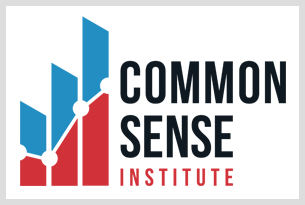FOR IMMEDIATE RELEASE
October 11, 2019
Contact: Cinamon Watson
303-949-7264
Brown: “Prop CC poses a very significant decision for Coloradans. It will fundamentally change the way Colorado budgets and spends”
Denver, CO – Common Sense Policy Roundtable (CSPR) released a new study evaluating Proposition CC. The study, Proposition CC: Critical Questions Answered, evaluates the history and impact of state spending under the Taxpayer Bill of Rights, also known as TABOR.
“Prop CC poses a very significant decision for Coloradans. It will fundamentally change the way Colorado budgets and spends,” said Chris Brown, CSPR Director of Policy and Research. “Our goal is to provide voters with the facts to make an informed decision.”
Proposition CC will appear on the November 2019 ballot. Through a referred measure from the Colorado General Assembly, Proposition CC asks voters if they want to allow the state to retain and spend all revenue above the current TABOR spending limit, substantially altering Colorado’s fiscal policy structure.
According to the study, over the next few years, the current forecasts from the state suggest TABOR refunds would range from $407 million over the next two years to $1.7 billion over the next three years.
“While the purpose of the TABOR spending limit is to maintain state spending at rate of population growth and inflation, since the passage of TABOR, real state spending per Coloradan has actually grown by 69%,” continued Brown. “This means the state now spends over $34,000 annually for a Colorado family of four.”
Key Findings of the study include:
- Since passage of TABOR, revenue exempt from the TABOR limit has grown from 46% to 72% of state spending, as state enterprise revenue has grown from $742 million in FY94 to $17.9 billion in FY18.
- Total nominal spending for K-12 education and higher education is at an all-time high. When adjusting nominal spending for inflation and population growth, (putting spending in terms of the TABOR spending limit) total general fund spending is up 8% and health care spending is up 30% since the passage of Ref C. Yet in these terms, K-12 education spending from the general fund is down 5% and Higher Education spending is down 3%.
- Over the next few years, the current forecasts from the state suggest TABOR refunds would range from $407 million over the next two years to $1.7 billion over the next three years.
- Given the uncertainty of the annual growth of revenue, restrained state spending may be more useful to mitigate severe cuts during recessions, rather than funding new state programs.
- While recent increases in vehicle and other fees have counted towards the TABOR cap, Proposition CC would allow future legislatures to raise revenue through certain fees without running into a spending limit.
- Proposition CC requires revenue retained above the TABOR spending limit to be spent equally across K-12 education, higher education and transportation, yet there is no limitation on existing revenue being reallocated to other areas while Proposition CC revenue is allocated according to the new law. This would cause a similar dynamic to the outcome of Ref C as the growth in the spending priorities of Ref C did not keep pace with the overall growth in the budget.
- The combined annual commitment of $425 million of two of the recent general fund expansions, a direct disbursement to PERA, and the state funding of full day kindergarten, is $160 million more than the projected TABOR surplus next year.
Read the full study here.
###
Common Sense Policy Roundtable is a non-profit, free enterprise think tank dedicated to the protection and promotion of Colorado’s economy.

